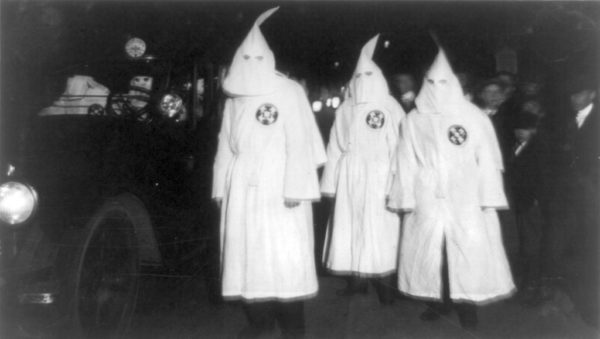South Carolina 5th Graders are Asked to Explain K.K.K.’s Thinking
Maggie Astor, The New York Times, September 20, 2017

“You are a member of the K.K.K.,” the fifth-grade homework assignment read. “Why do you think your treatment of African-Americans is justified?”
The work sheet, given on Thursday as part of a lesson on the Reconstruction period, caused an outcry after one student’s uncle, Tremain Cooper, posted a photo of the assignment on Facebook.
{snip}
In a statement provided by Ms. Goggins, the school district said: “South Carolina standards for fifth grade require lessons on Reconstruction and discriminatory groups, including the K.K.K. We must teach the standard, but we are taking steps to ensure this particular assignment will never be used again in District Five schools.”
The work sheet was particularly explosive because of the political climate. Since President Trump was inaugurated, Ku Klux Klan members, neo-Nazis and other white supremacists have become more visible.
{snip}
The offensive assignment in South Carolina is at least the third this year that has resulted in accusations of racial insensitivity.
{snip}
A similar assignment was given to third graders in Gwinnett County, Ga., in 2012: “If Frederick got two beatings per day,” it asked, “how many beatings did he get in one week?”
{snip}
Mr. Cooper emphasized this context in an interview on Tuesday.
“I think it’s very important that the larger issue does not go away,” he said. “I think the conversation needs to continue. The conversation should be elevated but yet go deeper. I think the larger issue of class assignments and curriculums for African-American children that are more culturally sensitive and less offensive is where the conversation should go.
“I think that’s the larger issue, and that’s what we as a family do not want to get lost in this situation.”
And what about his nephew, who was crying on Thursday?
“Today he is in great spirits,” Mr. Cooper said. “He’s so proud of himself today, because he spoke up for himself.”















